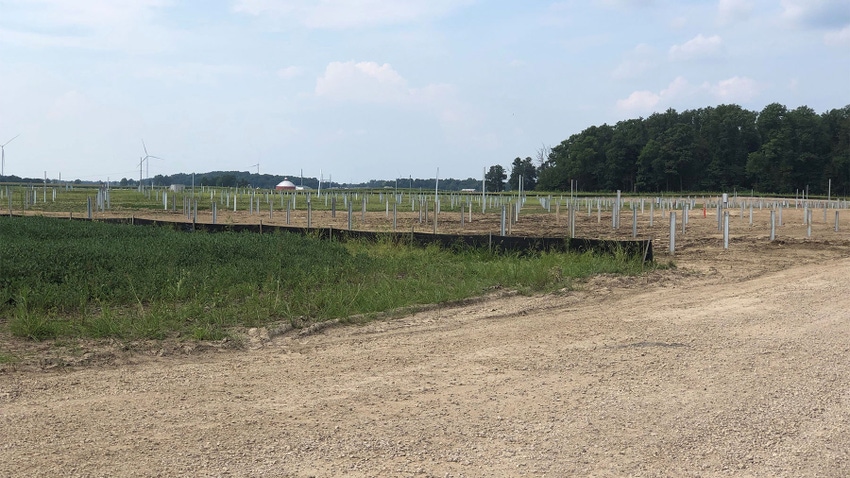
You’re seeing more articles related to concerns about the loss of farmland because people are finally asking more questions. Fewer people are driving by the next new subdivision or warehouse project without asking, “Why? Do we really need another subdivision? Do we truly need another warehouse?”
Increasing encroachment of solar farm projects is also sparking questions. Like with subdivisions and warehouses, questions about solar projects surface more often in the neighborhoods the proposal affects.
Here’s a letter to the editor from a reader of Indiana Prairie Farmer. It was initiated by an article, but this reader’s concerns are fueled more directly by a proposed solar project in his area.
Dear editor:
I read with great interest your article on Page 8 of the November issue of Indiana Prairie Farmer, Will Hoosiers recognize farmland loss as an issue? I felt an urge to contact you. As you described your wife’s disturbance while driving past warehouses put on former productive farmland, I feel some of the same feelings.
I think, in some ways, our society is focused more on growth, developments and financially motivated decisions in the present, than in looking to the future and seeing what ramifications those things might bring. In our little town of Rossville, urban encroachment may not be much of an issue, but we’re facing a different problem with similar concerns. There is a proposed solar farm that would lie adjacent to the east border of our town limits. The project would entail 263 acres along Indiana State Road 26.
There are many concerns about this project, including it being located immediately next to Milner Healthcare, a nursing home and independent living facility. Many Rossville residents are justifiably concerned about possible contamination, fire safety, lighting interference and possible noise that the nursing home might experience.
Imagine if there was a fire or some disaster and the facility had to be evacuated! There would not be enough ambulances available. Risk to residents could be huge.
There are other concerns. Would possible growth of Rossville be hindered due to aesthetics and danger people may sense, falsely or not?
While I am on board with all these reasons to oppose the project, I think that down deep, my real concern is loss of productive farmland. The land is owned by a large investment firm from South Bend [Ind.], whose mission, in their statements, is to buy productive farmland to ensure that the food supply in this county will remain viable in the future. However, the CEO recently stated that the most profitable involvement in land ownership, for that group, would be putting land they acquire under solar panels. Seems to me that there is a conflict to those two ideas.
If we don’t stand up as producers or concerned individuals to projects like this or to the ones mentioned in your article, the future may be cloudy. Sorry to bend your ear for so long, but your article really got a nerve irritated!
Sincerely,
Kent Need,
Rossville, Ind.
About the Author(s)
You May Also Like




